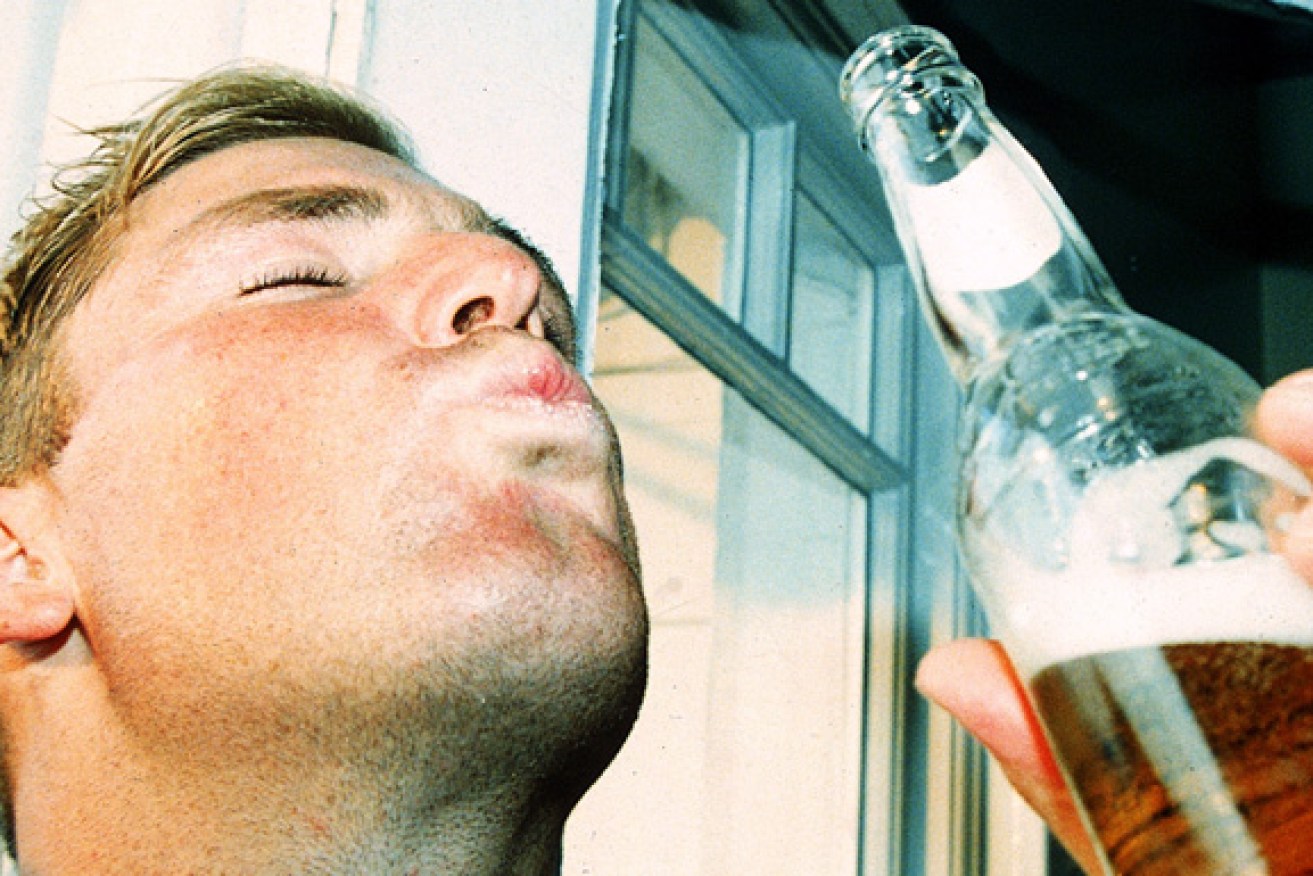Australians are becoming increasingly ‘fed up’ with alcohol advertising and its harms, says an expert based on new research.
A majority of the nation now supports a ban on both alcohol sponsorship of sport and a total ban on booze advertising, a recent Essential Research poll of almost 1,800 people has found.
The vast majority (87 per cent) want more education about responsible drinking, and just under 60 per cent want a sport sponsorship ban, an increase in the legal drinking age and a ban on ads.
• Heroes to zeroes as the World Cup runneth over
• Aussie sport fans ‘bombarded by booze ads’
• Are you drinking too much?
On Wednesday, former Victorian premier Jeff Kennett voiced the changing national mood in a blistering column published in the Herald Sun.
Grog is a far worse problem than the drug ice, said Mr Kennett, describing it on Twitter as “the biggest mind changing drug” — the cause of road deaths, lethal king hits and domestic violence.

The response to Warne’s interviews hints at changing public mood.
“We banned cigarette advertising and promotion, which only kills individuals,” he wrote.
“Time we banned alcohol promotion and sponsorship.”
Leading alcohol expert Professor Mike Daub at Curtin University told The New Daily he “absolutely” agreed with the former premier, describing Mr Kennett’s comments as “tremendously important”.
Public opinion has shifted “dramatically” in recent years, Professor Daub said.
This may be evidenced by the public outcry over cricketer-turned-commentator Shane Warne, who was criticised for promoting drinking during widely televised interviews after Australia won the cricket World Cup.
“Are you feeling thirsty?” Warned asked wicketkeeper Brad Haddin.
“Are you going to have a bit of a drink tonight too Smitty?” he pestered Steve Smith.
“Are you going to get thirsty as well? The boys are thirsty they seem.”
A change in drinking habits has been confirmed by another recent Essential Research poll, which found 34 per cent of respondents were drinking less than they were three years ago, compared to only 13 per cent drinking more.
“People have had enough,” said the Professor, who confirmed the result was consistent with other research.
“They’re pretty fed up with having alcohol promotion rammed at them every time they try to watch a sporting event.”
“They’ve had enough, not of sensible drinking, but enough of both the long and short-term harms arising from alcohol.”
The Professor said the changing attitudes were encouraging, but that state and federal governments must do more.
“If they can have a taskforce looking for urgent action on [the drug] ice — which is all good, I’m absolutely not against that — it would be good to see the same urgency about the much greater problems caused by alcohol,” he said.
“Of course we want action on ice, but it would be good to see the same level of urgency about alcohol, which causes far more problems.”
Alcohol has been proven to contribute to violence and road crashes, and can also trigger brain damage and cancer, amongst other long-term health side effects.









